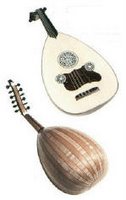
December 06: Luckily enough caught
the Marco Pereira
gig in Singapore.
Brazilians have
the knack of making
music with
passionate intensity.
While other performers
tend to merely play the
instrument with clinical
imprecision (all
too often) Brazilians
play it brimming with
fire; with Marco it was
like listening to a flamenco performance
except that Marco was playing South
American compositions (Brouwer,
Piazzola or Jobim). Funnily enough,
he was introduced as having been in a recent
accident in Malaysia where he had fractured a
few ribs - an event which might have made
for a 'no-show' in other cases. However, the way
he played - I wouldn't be surprised if he had
dislodged a couple of ribs in the course of the
Singapore performance... Three cheers for
the miracle though!
Picked up chill: brazil3 and was immediately taken by Celso
Fonseca's slow motion bossa nova (you're so good to me) - a
beautiful bossa focusing on a writer in love. The bossa mode
seems to be eminently suited to a slow lyric tempo although
there are the occasional frothy & successfully bubbly one's
like Jobim's So Danco Samba; but the bubbly ones are rare
in relation to the ones that express (not necessarily the darker
side) but the more thoughtful or meditative moods -
occasionally descending into bathos; Jobim's Corcovado or
certainly Meditacao appear to be generally more successful;
the loping rhythm of the bossa is wrung to the full in such
songs which, deceptively, often appear understated
or restrained. Scratch a little beneath the surface
however and you're bound to uncover a powerhouse
of passion eg Jobim's Amor Em Paz /Once I Loved -
especially as sung by Shirley Horn in the CD Bossa
Nova: Soothing Sounds of Brazil.)

